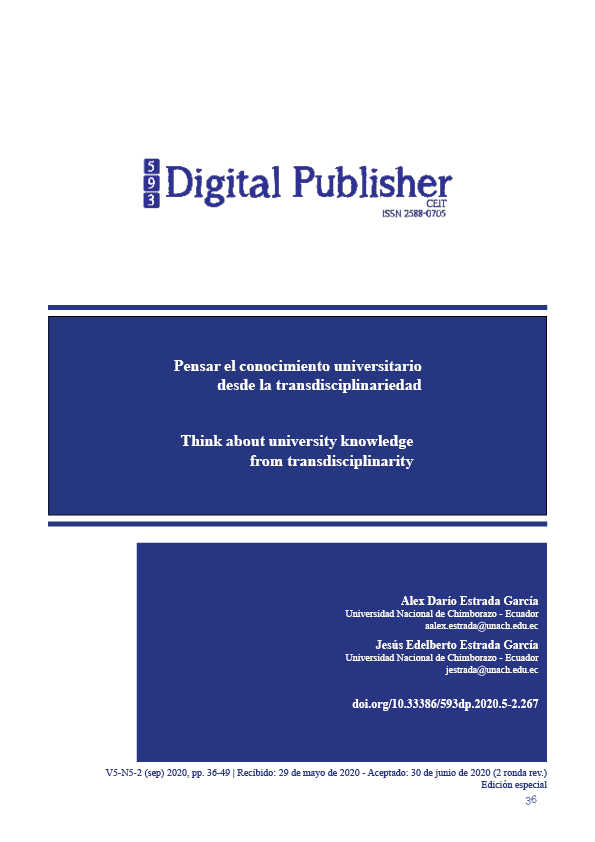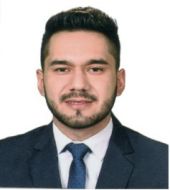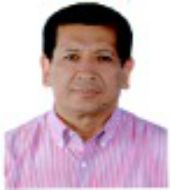Think about university knowledge from transdisciplinarity
Main Article Content
Abstract
The article develops formulations around concepts from transdisciplinarity as a methodology to think and interpret the processes of construction of knowledge. The inter-epistemic dialogue of the conceptual framework begins at the genesis of transdisciplinarity, and is sensitive to understand the complexity of university knowledge and think from transdisciplinarity to educate and learn together with society. In conclusion, a way of thinking about university knowledge in the context of the globalized era requires: a transdisciplinary approach, complex thinking, transdisciplinary awareness, spirituality, relationship with nature and creativity.
Downloads
Article Details
1. Derechos de autor
Las obras que se publican en 593 Digital Publisher CEIT están sujetas a los siguientes términos:
1.1. 593 Digital Publisher CEIT, conserva los derechos patrimoniales (copyright) de las obras publicadas, favorece y permite la reutilización de las mismas bajo la licencia Licencia Creative Commons 4.0 de Reconocimiento-NoComercial-CompartirIgual 4.0, por lo cual se pueden copiar, usar, difundir, transmitir y exponer públicamente, siempre que:
1.1.a. Se cite la autoría y fuente original de su publicación (revista, editorial, URL).
1.1.b. No se usen para fines comerciales u onerosos.
1.1.c. Se mencione la existencia y especificaciones de esta licencia de uso.
References
Belcher, B., Claus, R., Davel, R., & Ramirez, L. (2019). Linking transdisciplinary research characteristics and quality to effectiveness: A comparative analysis of five research-for-development projects. // Environmental Science & Policy, 101 (November 2019) 192-203. https://doi.org/10.1016/j.envsci.2019.08.013
Brown, B. (2015). Utopian thinking and the collective mind: Beyond transdisciplinarity. // Futures. 65 (January 2015) 209-216. https://doi.org/10.1016/j.futures.2014.11.004
CanĠer, M. & Brumar, C. (2011). Transdisciplinary niches fostering lifelong learning. // Procedia-Social and Behavioral Sciences. 28 (October 2011) 636-639. https://doi.org/10.1016/j.sbspro.2011.11.120
Cilliers, P. & Nicolescu, B. (2012). Complexity and transdisciplinarity–Discontinuity, levels of Reality and the Hidden Third. // Futures. 44:8 (October 2012) 711-718. https://doi.org/10.1016/j.futures.2012.04.001
Conferencia Mundial sobre la Educación Superior (1998). Declaración mundial sobre la educación superior en el siglo XXI. Visión y acción. París: UNESCO.
Descartes, R. (1954). Philosophical writings. London: Open University Press.
Huertas, O. (2013). Educación y pedagogía desde la perspectiva del paradigma emergente. // Revista Logos, Ciencia & Tecnología. 4:2 (Junio 2013) 53-61.
Ebers-hn, L., Ferreira-Prévost, J., Maree, J., & Alexander, D. (2007). Exploring facilitation skills in transdisciplinary teamwork. // International Journal of Adolescence and Youth. 13:4 (March 2012) 257-284. https://doi.org/10.1080/02673843.2007.9747980
Escobar, R. y Escobar, M. (2020). Transdisciplinariedad y Docencia de Postgrado, Escuela Superior de Gestión Pública, (ESAP). // Revista Educación. 44:1 (December 2019) 309-326. 10.15517/REVEDU.V44I1.37336
Estrada, A. (2018a). El pensamiento complejo y el buen vivir como epistemes emergentes para comprender la formación docente desde la diversidad. // Revista Arbitrada Del Centro de Investigación y Estudios Gerenciales. 34:2 (November 2018) 221-35.
Estrada, A. (2018b). El pensamiento complejo y el desarrollo de competencias transdisciplinares en la formación profesional. // Runae. 3 (June 2018) 177-193.
Estrada, A. (2019). Educación Superior: Una Perspectiva Desde El Pensamiento Complejo. Saarbrüken: Editorial Académica Española.
Estrada, A. (2020). Los principios de la complejidad y su aporte al proceso de enseñanza. // Ensaio: Avaliação e Políticas Públicas em Educação. AHEAD (April 2020). http://dx.doi.org/10.1590/s0104-40362020002801893
Fuentes, A., y Collado, J. (2019). Fundamentos epistemológicos transdisciplinares de educación y neuroeducación. // Sophia, Colección de Filosofía de la Educación. 26 (January 2019) 83-113. http://dx.doi.org/10.17163/soph.n26.2019.02
Gibbs, P. (2017). Transdisciplinary Thinking: Pedagogy for Complexity. Cham: Springer. https://doi.org/10.1007/978-3-319-56185-1_4
Guimarães, M., Pohl, C., Bina, O., & Varanda, M. (2019). Who is doing inter-and transdisciplinary research, and why? An empirical study of motivations, attitudes, skills, and behaviours. // Futures. 112 (September 2019) 102441. https://doi.org/10.1016/j.futures.2019.102441
Hadorn, G., Bradley, D., Pohl, Ch., Rist, S., & Wiesmann, U. (2006). Implications of transdisciplinarity for sustainability research. // Ecological economics. 60:1 (November 2016) 119-128. https://doi.org/10.1016/j.ecolecon.2005.12.002
Heidegger, M. (1949). ¿Qué es la metafísica? Brisgovia: Universidad de Friburgo.
Heidegger, M. (1988). El ser y el tiempo. México: Fondo de Cultura Económica.
Holzer, J., Adamescu, C., Cazacu, C., Díaz, R., Dick, Jan., Méndez, P., & Orenstein, J. (2019). Evaluating
transdisciplinary science to open research-implementation spaces in European social-ecological systems. // Biological Conservation. 238 (October 2019) 108228. https://doi.org/10.1016/j.biocon.2019.108228
Lederman, L. (2006). K-12 Science Education as the Road to Consilient Curricula. // Annals of the New York Academy of Sciences. 935 (January 2006) 261–265. https://doi.org/10.1111/j.1749-6632.2001.tb03486.x
McGregor, S. (2014). Transdisciplinarity and conceptual change. // World Futures. 70:3-4 (August 2014) 200-232. https://doi.org/10.1080/02604027.2014.934635
McGregor, S. (2020). Transdisciplinarity and Transpraxis. // Transdisciplinary Journal of Engineering & Science. 11 (April 2020) 75-90 https://doi.org/10.22545/2020/00134
Montuori, A. (2013). Complexity and Transdisciplinarity: Reflections on Theory and Practice. // World Futures: The Journal of New Paradigm Research, 69:4-6 (July 2013) 200-230. https://doi.org/10.1080/02604027.2013.803349
Moraes, M. (2010). Transdisciplinariedad y educación. // Rizoma freireano. 6 (September 2010) 2-16.
Morin, E. (1995). Introducción al pensamiento complejo. Buenos Aires: Editorial Gedisa.
Morin, E. (1999). Los siete saberes necesarios para la educación del futuro. Paris: UNESCO.
Morin, E., & Kern, A. (1999). Homeland Earth: A manifesto for the new millennium. New York: Hampton Press.
Nicolescu, B. (1996). La transdisciplinariedad. Manifiesto. México: Multiversidad Mundo Real Edgar Morin.
Nicolescu, B. (2010). Methodology of transdisciplinarity – levels of reality, logic of the included middle and complexity. // Transdisciplinary Journal of Engineering & Science. 1:1 (December 2010) 19-38.
Nicolescu, B. (2012). Transdisciplinarity: the hidden third, between the subject and the object. // Human and Social Studies. 1:1 (November 2012) 13-28. https://doi.org/10.2478/v10317-012-0002-5
Nicolescu, B. (2014). Methodology of transdisciplinarity. // World Futures. 70:3-4 (August 2014) 186-199. https://doi.org/10.1080/02604027.2014.934631
Pasquier, F. & Nicolescu, B. (2019). To be or Not to be Transdisciplinary, that is the New Question. So, How to be Transdisciplinary? The Atlas // Transdisciplinary Journal of Engineering & Science. 10 (January 2019) 1-7. https://doi.org/10.22545/2019/0110
Piaget, J. (1970). Epistemology of Interdisciplinary Relations. Paris: OCDE.
Popescu, G., & Stan, A. (2015). Who is the Transdisciplinary Educator? // Procedia-Social and Behavioral Sciences. 203 (August 2015) 95-101. https://doi.org/10.1016/j.sbspro.2015.08.265
Smetschka, B., & Gaube, V. (2020). Co-creating formalized models: Participatory modelling as method and process in transdisciplinary research and its impact potentials. // Environmental Science & Policy. 103 (January 2020) 41-49. https://doi.org/10.1016/j.envsci.2019.10.005
Vila, D., Hernández, H., y Martínez, F. (2016). El diseño curricular doctoral desde la perspectiva transdisciplinaria. // Revista Cubana de Educación Superior. 35:1 (August 2016) 114-129.
Walsh, Catherine. (2012). Interculturalidad crítica y (de)colonialidad. Ensayos desde AbyaYala. Quito: AbyaYala.



